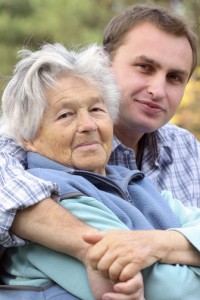The UK has seen a 20% fall in the incidence of dementia over the past two decades, according to research by the University of Cambridge. However, the study suggests that the dramatic change has been observed mainly in men.

While the media has suggested that the number of people with dementia is set to mushroom as the population ages, several recent studies have suggested the picture is more complex. Measures which improve health such smoking reduction and attention to diet and exercise may be driving a reduction in risk.
The researchers found that the incidence of dementia – the proportion of people developing dementia in a given period – across two decades has dropped by 20%. These findings suggest that in the UK there are fewer than 210,000 new cases per year compared to an anticipated 250,000 new cases based on previous levels.
It is not clear why rates among men have declined faster than those among women, though it is possible that it is related to the drop in smoking and vascular health improving in men.








